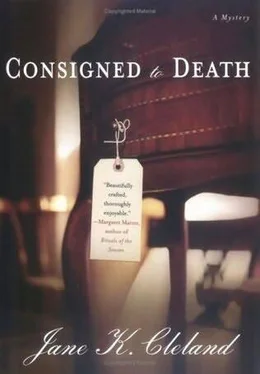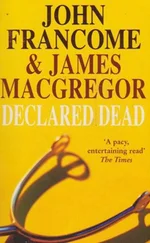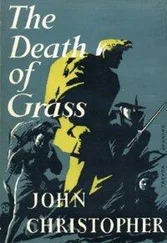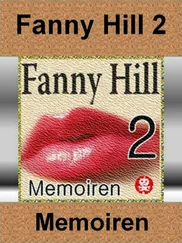“I’m supposed to meet the Cabots,” I told her.
“This way, dearie. They’re waiting for you.”
She led me to a table around a corner, past oversized windows and tall palm trees. Two people sat across from each other. One, an attractive woman in her sixties with white wavy hair and an ivory complexion, sipped from a coffee cup. The other, a younger woman of about my age, shook a tall glass of what looked like the dregs of iced tea. I heard the jiggling of the ice as we approached. They sat in stony silence, as if they were strangers.
“Here she is, dearies,” the hostess said as she placed a menu on the table.
“Hello,” I said. “I’m Josie Prescott.”
Both women looked at me. I suddenly felt conspicuously underdressed and unkempt. I shouldn’t have come straight from a long day at work. My jeans were dirty and stretched out, my plain-Jane T-shirt was covered by an oversized flannel shirt, and my engineer boots were scuffed.
“I’m Dana Cabot,” the older woman said politely, without warmth. “And my daughter, Andi. Miranda.”
“Hi,” I said.
Mrs. Cabot said, “Please, have a seat.”
The younger woman leaned back and stared at me. She looked and acted angry as she shook her glass, swirling the ice. Switching her attention to the hostess, she said, “I’ll take another.” She took a last, long drink and handed over the glass.
“And for you, dearie?” the hostess asked me.
“Give me a minute,” I answered, sitting down, looking from one to the other. They didn’t look alike. Dana Cabot looked well coiffed, well dressed, and well fed. Her daughter, Andi Cabot, looked sick.
“Have you eaten?” Mrs. Cabot asked.
“No, actually, I haven’t. If you wouldn’t mind, I’d love to get something.”
“Of course,” she answered.
I looked at the menu and, surreptitiously, at them. Mrs. Cabot looked like an affluent matron who hadn’t had a lot of worry in her life. Andi was too thin, the kind of thin that comes from a chronic, life-threatening disease, or maybe from doing a lot of drugs over a lot of years. Her eyes were clouded, her skin sallow, and she seemed enveloped in a cloud of resentment. Sitting next to her, I wanted to slide my chair a bit farther away lest I catch whatever ailed her.
“I’m sorry about your father,” I said. “And your grandfather. I hadn’t known him for long, but we’d had many pleasant conversations over the last week or so.”
“Thank you,” Mrs. Cabot replied. “My father had many good qualities.” She cleared her throat. “You’re probably wondering why I asked to meet you.”
“My assistant said you wanted to talk to me about your father’s estate.”
“Yes,” she said, with a glance at Andi. “You saw my father’s house?”
“Yes. Everything is very beautiful. Not just the antiques. Everything. The house, the grounds. Everything,” I said.
She nodded. “It’s funny to be in New Hampshire and staying in a hotel. But we couldn’t stay at the house. Not after…” she trailed off.
“I understand,” I said.
The waiter arrived with Andi’s drink and coffee to refill Mrs. Cabot’s cup. He poured a cup for me, too. I ordered a hamburger, medium, and asked for water, no ice. I wanted a martini, but knew that even one would put me to sleep, facedown in my plate.
Andi shifted impatiently in her chair, continuing to look irritated. I wondered if it was annoyance I was perceiving, or contempt. Maybe she took my sloppy appearance as a personal affront, as if I were indicating that she and her mother weren’t worth the bother of cleaning up.
“I should have mentioned,” I said, “that I came straight from work. Please excuse my appearance.”
“No problem. We understand completely, and are just pleased that you were able to come at all,” Mrs. Cabot said.
I waited for her to continue, wondering if her polite words would mellow Andi’s antipathy. Andi slapped her drink on the table, and opened her eyes wide at her mother. Having caught her attention, Andi wiggled her fingers. Hurry it up, Mother , she seemed to be signaling. Get on with it.
“Did my father talk to you about selling anything?” Mrs. Cabot asked, jumping in.
“Why do you ask?” I was curious about Andi’s role in the family. It almost seemed that Mom was following cues from her daughter.
She sipped her coffee, and I noted that she drank it black. “I need to decide what to do about my father’s estate. I’m trying to learn what my father intended.” She shrugged. “Knowing his plans might help me decide what would be best to do at this point.”
I didn’t see the connection. What did Mr. Grant’s former intention have to do with their current plans? Maybe she was a sentimental sort.
“Are you thinking of selling the contents of the house?” I asked, faking confusion, aware that I was avoiding answering her question. For some reason, it seemed smart to be cagey, but I wasn’t sure why I was having that reaction. Maybe Andi’s impatience and seeming disdain colored my view. Or perhaps it was Max’s warning not to talk about the murder that made me wary. For whatever reason, my gut was telling me that until I knew more about what was going on, I shouldn’t reveal too much.
“Perhaps. Did you look at everything?”
“I don’t know about everything. I looked at some things.” I flipped a hand. “If you’re interested in selling, I’d be interested in buying, or auctioning, any or all of the goods. The items I saw were very special, and I’m sure you’ll realize a large amount of money.”
“If I decide to sell,” Mrs. Cabot asked, “and if I ask you to help, how would the process work?”
I was spared the necessity of providing a quick response when the waiter brought my hamburger and asked if we wanted anything else. I asked for ketchup and he produced it from a pocket in his apron.
“How much do you know about the origin of the antiques?”
“Why?” Mrs. Cabot asked.
I wondered if she was being cagey, too. “It makes research easier,” I answered. True enough, but I had another reason for asking. I was trying to discover how much she knew about her parents’ buying habits. From that information I might be able to discover more about the history of the Renoir.
“Not much, I’m afraid. I left home when I married, forty years ago.”
I nodded. Learning anything useful had been a long shot. So much time had passed since the Renoir had been hidden, according to the Web site I’d consulted, in an Austrian barn. Memories fade and witnesses die.
“How much will you give us for the lot?” Andi asked abruptly.
“Andi!” her mother protested.
“Oh, come on, Ma. What’s the problem?” To me she added, “Well? How much?”
“I don’t know,” I answered calmly, addressing Mrs. Cabot, not her daughter, while spreading ketchup on the bun. “As you know, your father hadn’t actually retained my company’s services before he died. What that means is that I didn’t do a complete appraisal. If you’d like, I will. Then I can make you an offer, tell you how much you’d be likely to get at auction, or discuss other possibilities, like a consignment sale arrangement.”
“How long would that take?” Andi asked, irritated.
“A few days. Not even,” I replied, remembering that I still had the videotape as reference.
“How much do you charge for the appraisal?”
“You probably don’t need a written appraisal.” I shrugged. “For me to get enough information to make you a fair offer, no charge.”
“Thank you. That’s very clear,” Mrs. Cabot said. “May I ask you… do you know my father’s lawyer, Mr. Epps?”
“Yes,” I said.
Читать дальше












